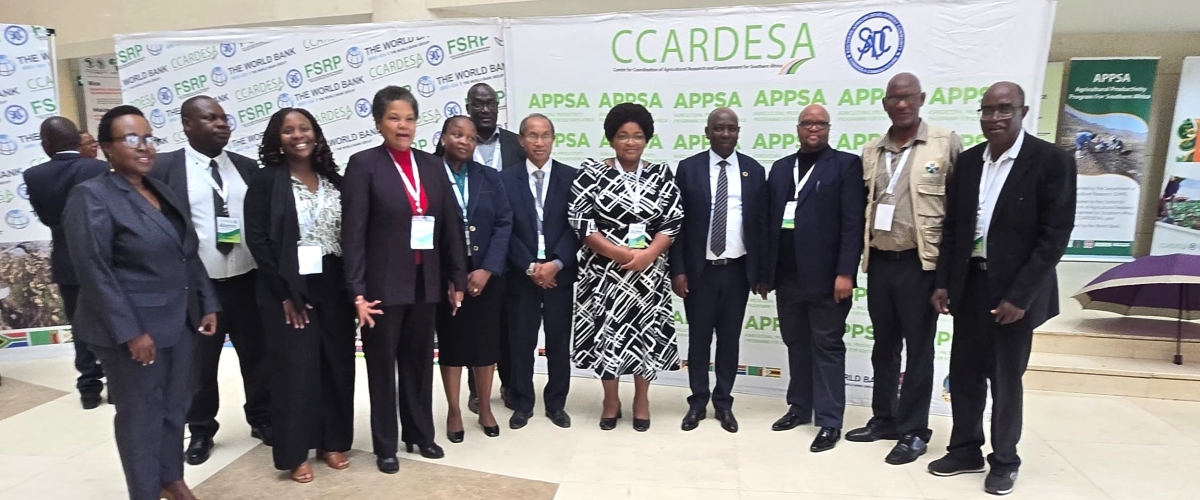
The Centre for Coordination of Agricultural Research and Development for Southern Africa (CCARDESA) successfully held its 4th General Assembly at the prestigious Manthabiseng Convention Centre in Maseru, Lesotho on 1st April, 2025. The event brought together key stakeholders from across the SADC region including representatives of policymakers, researchers, universities of agriculture, development partners, private sector representatives, non-government organisations in agriculture and farmers to reflect on progress, share lessons, and chart a collective path forward for transformative agricultural research and development in the region.
The Assembly was officially opened by the Honourable Thabo Mofosi, Minister of Agriculture, Food Security and Nutrition for the Kingdom of Lesotho. In his opening remarks, he applauded CCARDESA’s contributions on measures towards combating the negative impacts of climate change, enhancing agricultural research, and promoting food and nutrition security across SADC. “We must promote inclusive agricultural technologies, especially those targeting women and youth,” he emphasized, while also commending the decision to hold the General Assembly annually as a step towards faster regional progress. The Minister further acknowledged the critical roles played by development partners, academia, and the private sector, noting his confidence in CCARDESA’s leadership to steer the region towards a food-secure future.
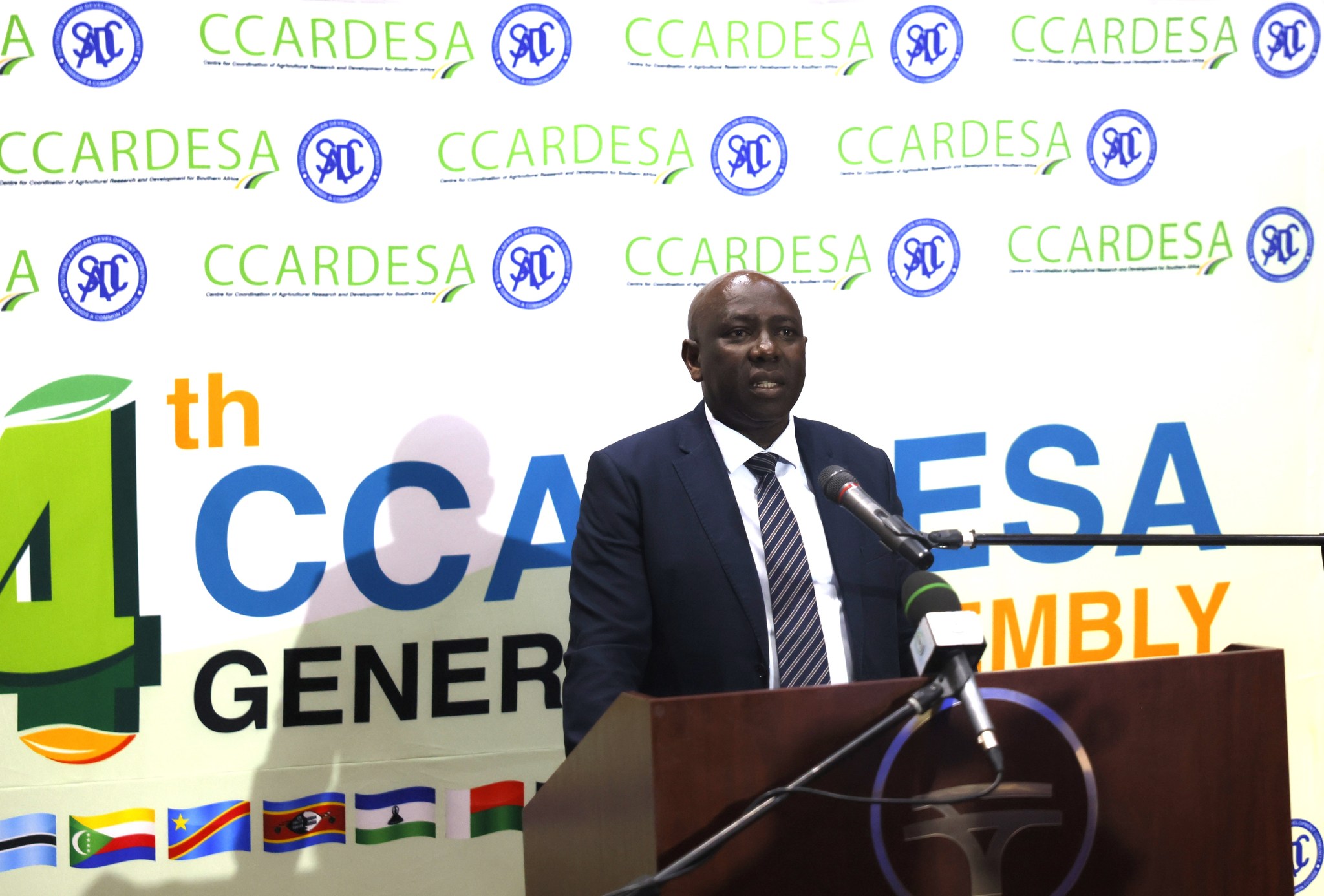
In his vote of thanks, CCARDESA Executive Director, Prof. Cliff Dlamini, expressed heartfelt gratitude to the Government of the Kingdom of Lesotho for graciously hosting the 4th General Assembly and for their warm hospitality. He extended appreciation to all delegates, partners, and stakeholders for their active participation and unwavering support towards CCARDESA’s mission. Prof. Dlamini also acknowledged the invaluable contributions of development partners, the Board, the Secretariat, and all presenters whose insights enriched the discussions. “Your presence and engagement are a symbol to our shared commitment to transforming agriculture in the SADC region,” he stated. He also reaffirmed CCARDESA’s dedication to driving regional collaboration and innovation for sustainable agricultural development.
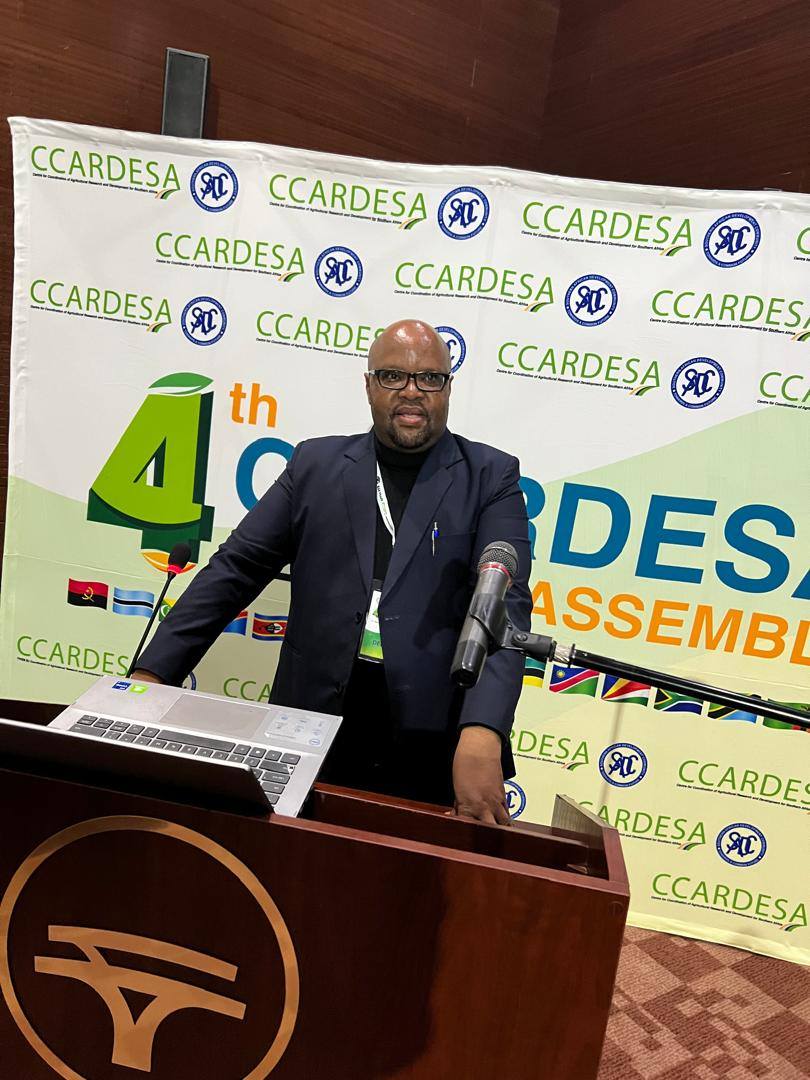
Prof. Lala Razafinjara, Chairperson of the CCARDESA Board, warmly welcomed delegates, thanking them for their dedication to advancing the SADC agricultural research and development agenda. He urged the region to invest in home-grown innovations to fight poverty, food insecurity, and malnutrition. “Now, more than ever, we need stronger regional cooperation and strategic use of policy frameworks to support our research and development efforts,” he stated. Prof. Razafinjara also recognized the valuable contributions of farmers, the private sector, non-state actors, and development partners. He concluded his remarks by introducing the Chairperson of the General Assembly, Dr. Grace Kaudzu, and the Vice Chairperson, Mrs. Gaolathe Radikwata and welcomed her to make her welcome remarks.
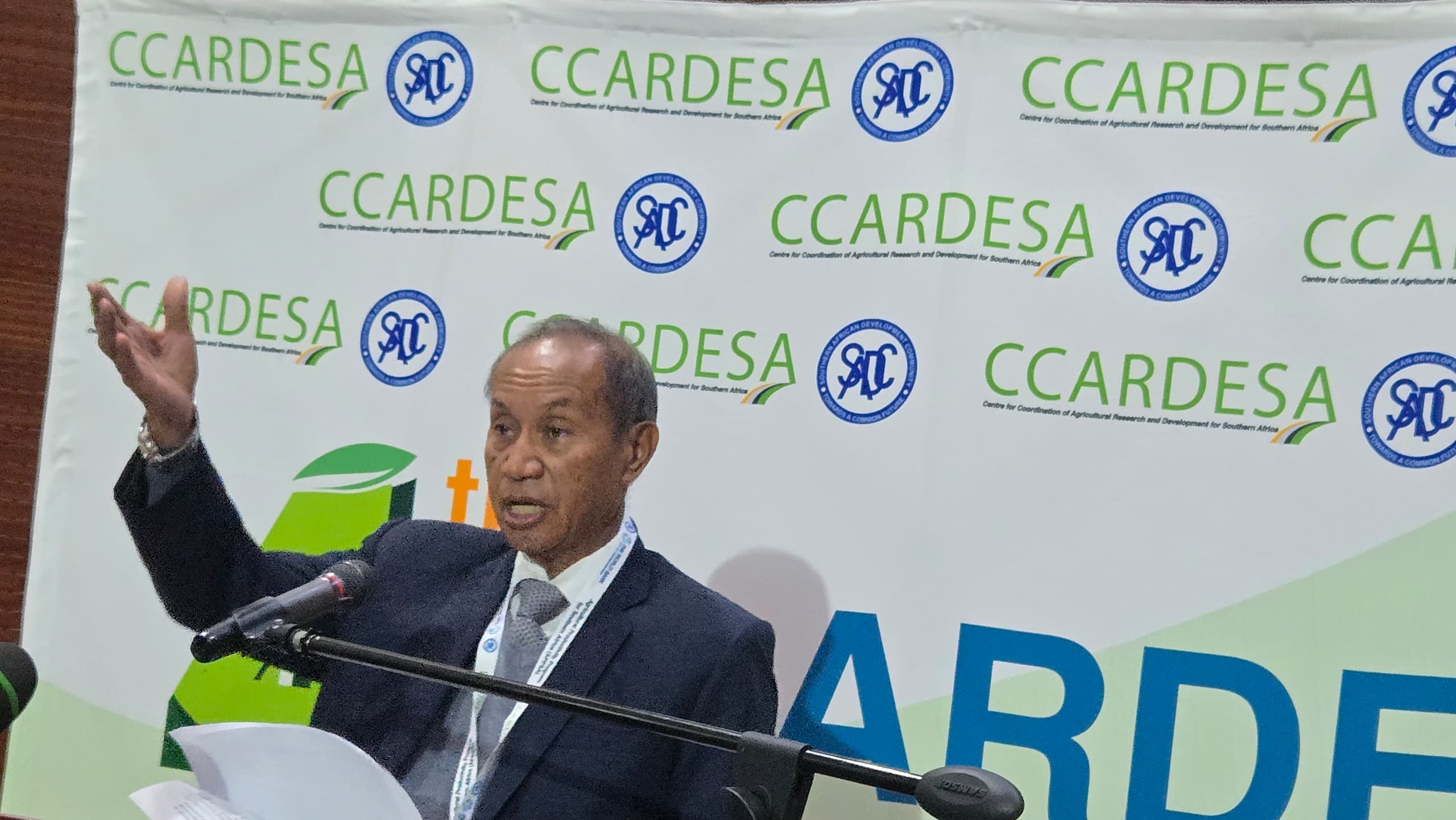
In her address, Dr. Grace Kaudzu, Chairperson of the CCARDESA General Assembly, reflected on the organization’s achievements and commitment. She reminded the audience of the region’s stake and of the expected role CCARDESA in driving the regional implementation of the recently adopted new phase of the Comprehensive Africa Agriculture Development Programme which was adopted this year in Kampala and the SADC Regional Agricultural Investment Plan (RAIP). She applauded the completion of the organisation’s revision of its Long-term Strategy and Medium-term Operational Plan and highlighted the stakeholder’s growing confidence in the Secretariat for being nominated by the SADC Secretariat to host the Regional Soil Health and Fertiliser Hub to champion the promotion of sustainable agricultural practices. “CCARDESA continues to embody the spirit of collaboration and learning that our region so deeply needs,” she echoed.
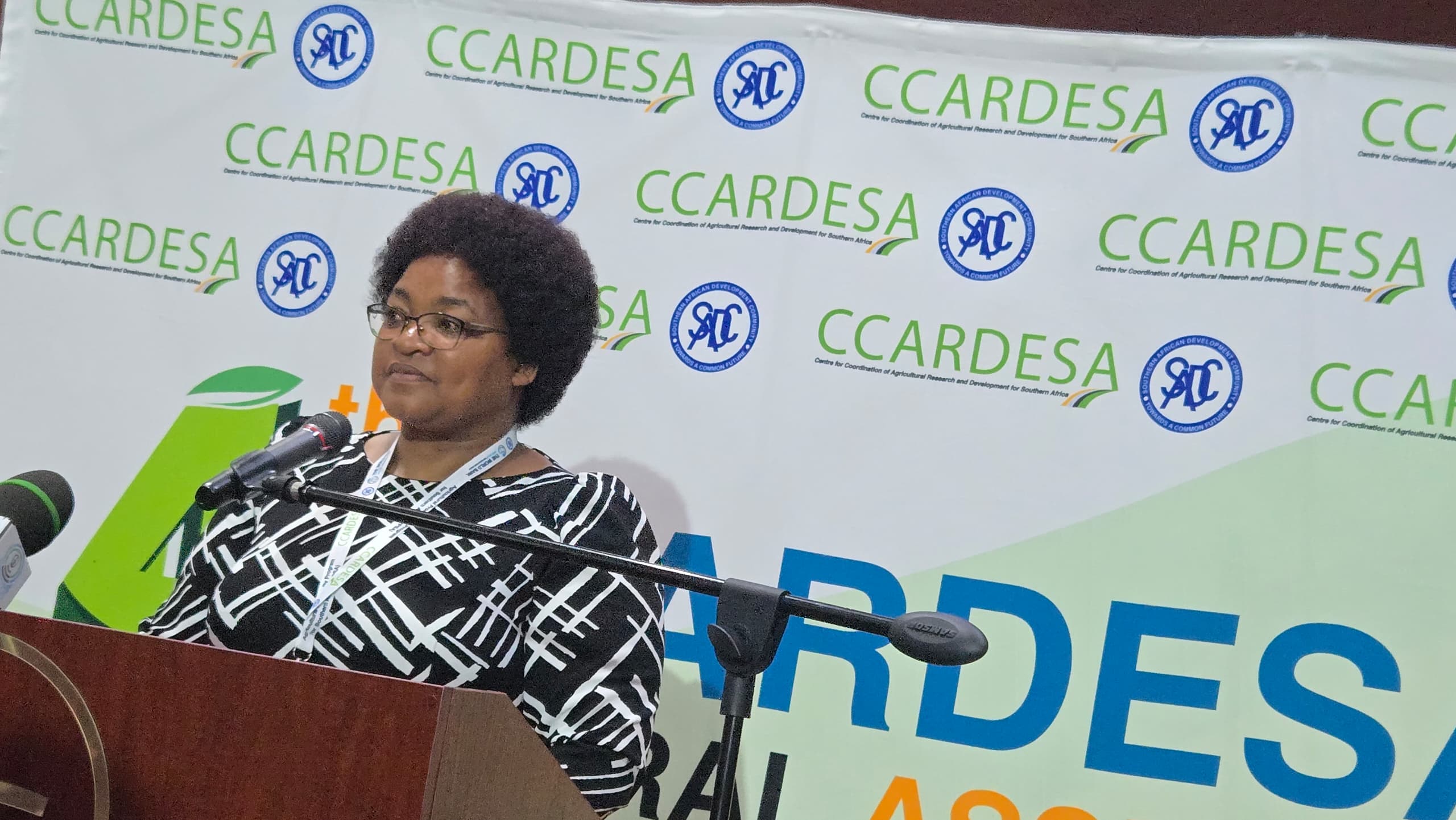
The General Assembly also featured input from one of CCARDESA’s valued development partners, GIZ. Mr. Namafe Namafe, Technical Advisor for Livelihoods, highlighted the strong alignment between GIZ’s work and CCARDESA’s mandate. “There are clear interlinkages in our efforts to promote sustainable agriculture and rural development in the region,” he stated, reinforcing the value of continued collaboration.
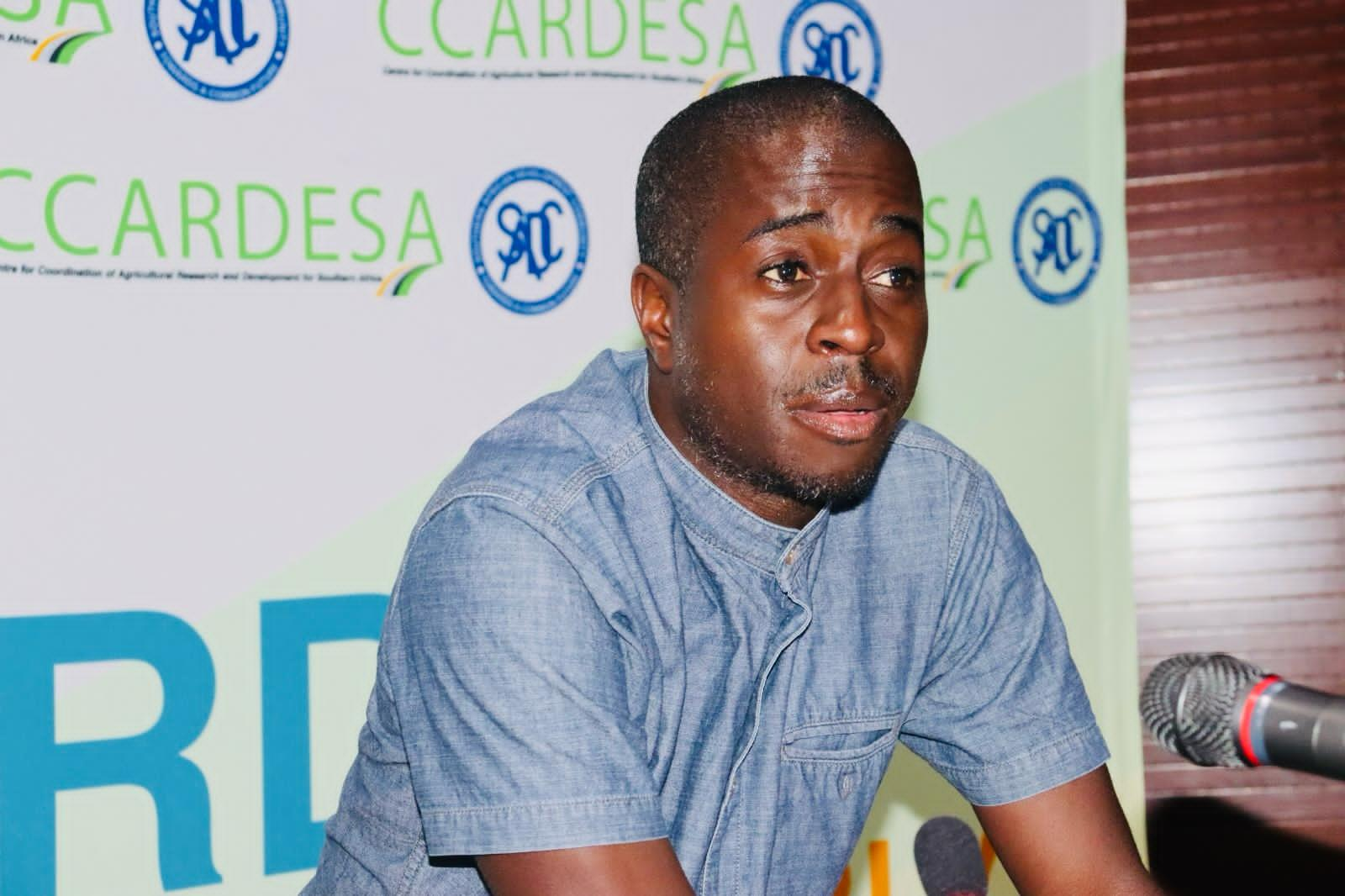
Dr. Frank Kayula, Chair of the Board Programmes Committee, presented a detailed account on the revision to the CCARDESA Strategy documents which have incorporated emerging issues and has given attention to topics which were given poorly covered in the previous version of the strategy. The CCARDESA Board reported on the status on implementation of amendments which were proposed in the 3rd GA on key governance documents, including the CCARDESA Charter, Governance Manual, and the GA Rules of Procedure Handbook. The amendments were necessary to align the organization’s governance framework with evolving operational needs and regional priorities. A revised organogram, reflecting updated roles and reporting structures, was also shared as part of efforts to enhance coordination and accountability within the Secretariat.
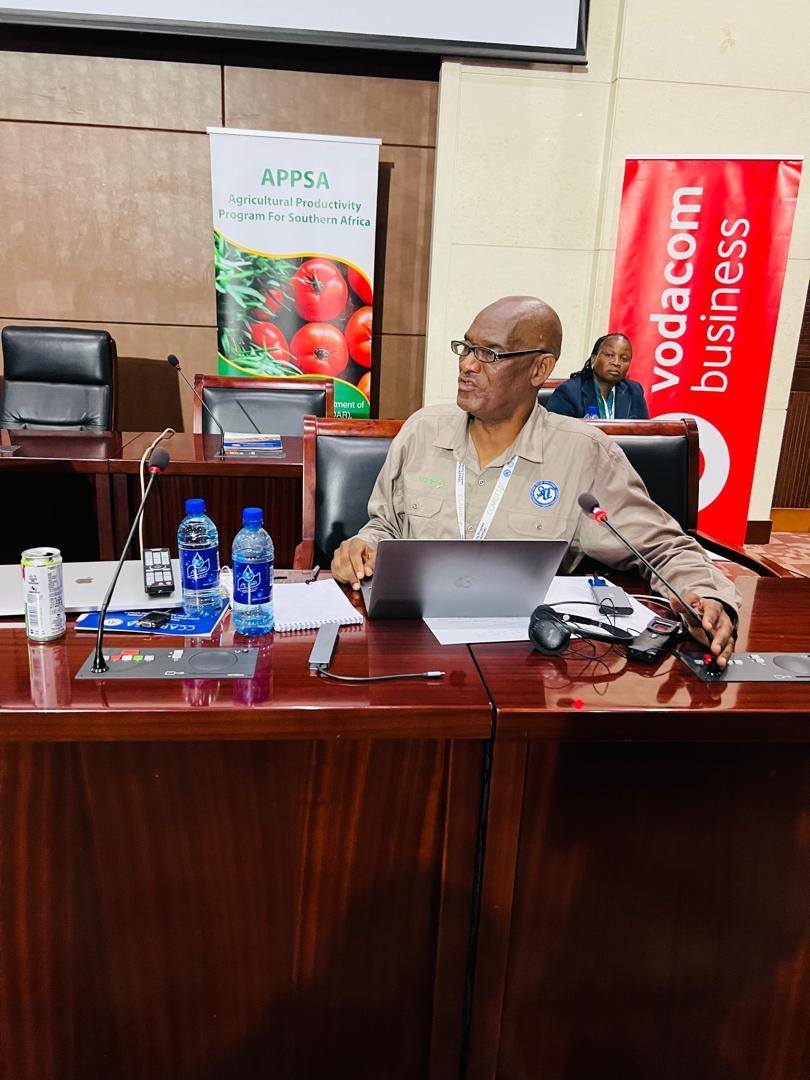
The GA approved the Terms of Reference (ToRs) for the Quality of Science Committee. The GA were updated on the list of current CCARDESA Board Members whose tenure will be ending in June 2025. The GA endorsed the proposed list of new Board Members who will be presented to the SADC Ministers responsible for Agriculture and Food security for their approval. The GA was informed that the term of the appointed external auditor was still valid and that a new firm will be appointed when the contract expires.
The CCARDESA Board Chairperson also presented on CCARDESA’s current project portfolio, highlighting major milestones, implementation progress, and regional impact. The stakeholders were also given an update on status of CCARDESA ‘s endeavours on forging partnerships in the region, across the continent and globally to support the delivery of agricultural research for development and innovation outcomes. He highlighted CCARDESA collaboration with African sub-regional and continental agricultural research and innovation coordination organisations (AFAAS, ASARECA, CORAF, FARA and RUFORUM) and with the One CGIAR and other international research centres.
Stakeholders were also briefed about the International Research Consortium (IRC) which is platform of European and African R&D partners aimed addressing impediments undermining the huge investment in agricultural research and innovation programmes in Africa brought about by fragmentation. The stakeholders endorsed CCARDESA’s bid for membership in the IRC. Belonging to the IRC will enable CCARDESA to participate in the execution of the EU-African Union endorsed Food and Nutrition Security and Sustainable Agriculture (FNSSA) Roadmap which outlines priorities jointly identified by EU and Africa. These priorities are largely informed by the EU strategy and the Comprehensive Africa Agriculture Development Programme (CAADP). The common research and innovation priorities for the AU and the EU within the FNSSA domain are outlined in a ten-year EU-AU FNSSA Roadmap (2016 – 2026). A process is underway to refine the old roadmap into the new 2027-2036 AU-EU FNSSA Roadmap. FARA has led the establishment of the governance structures for the IRC which are now in place and EU and African organisations are joining for an annual subscription fee of €1,000. Membership is open to all actors within the research and innovation space.
The General Assembly concluded on a high note with the election of new leadership. Mozambique has assumed the position of Chair of the General Assembly, represented by Dr. Barnabas Carlos Zandamela, while Namibia, represented by Dr. Grace Kangueehi, has been elected as Vice Chairperson.
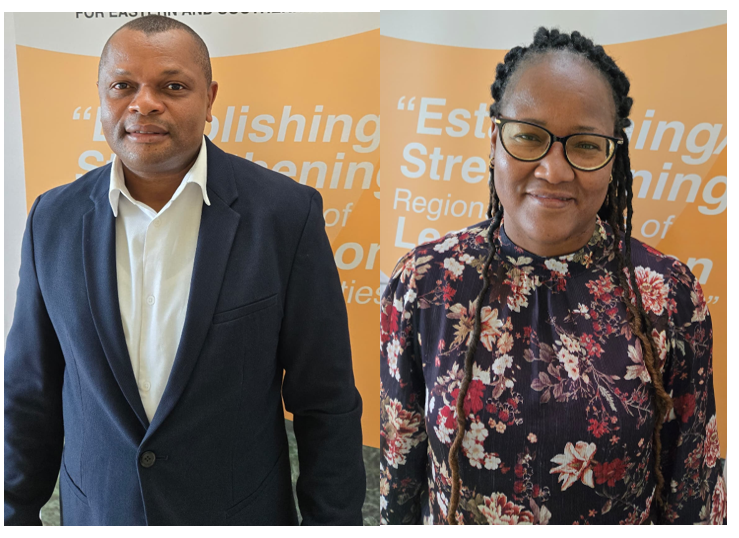
This new leadership is expected to drive forward CCARDESA’s vision of a food- and nutrition-secure SADC region, empowered by agricultural innovation and regional cooperation.





